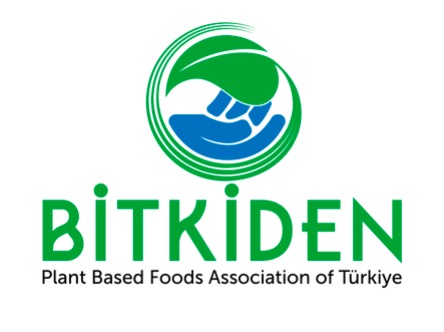
IT IS THE LEADING CAUSE OF FOOD POISONING
– What is the Salmonella bacterium?
It is one of the bacteria that most commonly cause food poisoning. This bacterium is naturally found in the intestinal tract of animals and spreads into the environment through feces. It can be transmitted to humans from any type of animal-based food that is raw or undercooked and improperly stored, as well as from infected individuals. For example, if an infected person leaves the toilet and does not wash their hands, especially if they then prepare food with those hands, this is a significant cause of spread.
According to World Health Organization data, approximately 94 million cases of salmonella are seen each year, resulting in 155,000 deaths, and 85% of these are food-related. In which foods is this bacterium most commonly found? And does every case result in death?
Poultry meat and eggs are at the top of the list. However, infections from products such as red meat and meat products, milk, cream, ice cream, and shellfish are also encountered. It is estimated that some vegetables and fruits are also contaminated through contact or irrigation with contaminated water. We can also be infected as a result of cross-contamination due to poor hygiene, contaminated equipment, and contaminated food not being properly processed, transported, or stored. Death from poisoning is less common. However, as in the case of kumpir, leaving animal products (milk, mayonnaise, sausage, etc.) outside for hours can kill the bacteria.
BEWARE OF FOOD SOLD OUTDOORS
–Well, almost all of the “street” flavors are sold outside…
Exactly. It’s obvious that it’s not in the refrigerator or at the proper storage temperature. For example, I see it a lot in grocery stores lately. Stuffed vegetables, stuffed grape leaves, stuffed meatballs… In a pot… Because it’s served to everyone who comes and goes, it’s left out for hours. But these and similar foods should be stored in the refrigerator. Mezes, for example… They don’t usually go in the fridge. So what happens? The food breeds bacteria, then poisons you. Unfortunately, we are very behind in basic food safety knowledge.

THE DANISH PRIME MINISTER DID IT, DON’T YOU DO IT
– So, are we safe at home? A few months ago, all of Europe, and even we, were talking about Danish Prime Minister Mette Frederiksen. She was criticized for cutting raw chicken and onions on the same cutting board.
Like I said, when it comes to basic food safety, there’s no difference between outside and inside; we’re seriously lacking. Some people still take meat out of the freezer and leave it out, others put it in boiling water to thaw. But this turns it into a breeding ground for bacteria. Chicken, in particular, should be thawed in the refrigerator, and its water should not come into contact with any other food. For example, tasting products made from raw milk, flour, and eggs at home, and then touching other food or kitchen utensils without washing our hands after touching these products is very dangerous. Similarly, knives used to cut raw meat should not be used to cut vegetables or bread. Different kitchen utensils must be used for animal products and for vegetables and fruits.
IF YOU HAVE SYMPTOMS SUCH AS DIARRHEA, VOMITING, OR STOMACH CRAMPS, DRINK PLENTY OF FLUIDS
Who is at risk for Salmonella bacteria and what are the first symptoms?
Symptoms generally include vomiting, diarrhea, fever, pain, and stomach cramps. The body experiences significant fluid loss. Unless symptoms are very severe, it is important to consume plenty of fluids. Medications to stop diarrhea should not be taken, as the bacteria need to be expelled from the body. If symptoms are severe, hospital treatment should definitely be started. In this recent case, the patient went to the hospital but unfortunately, treatment was not continued, leading to a tragic outcome. People with weakened immune systems, chronic illnesses, the elderly, infants, those undergoing treatment for diseases such as cancer, and pregnant women should be especially careful. It is beneficial to shop and eat at reliable, familiar places. You should be sure of the storage and cooking conditions of food.

INSPECTIONS ARE NOT AT AN ADEQUATE LEVEL
– The kumpirci in İzmir Buca has been closed down and its owner is in custody. So what is the state of inspections in businesses?
Unfortunately, inspections are neither sufficient in number nor adequate in scope. Previously, food engineers were mandatory in businesses. But now, there is no such requirement for medium and small businesses. This shows how lightly we take food safety. Of course, there are inspectors, but most are not food engineers. So, inspections are being carried out, but because the inspectors do not know what to look for, the process is unfortunately not effective. Therefore, it is essential to increase inspections and ensure that they are carried out by qualified food engineers. In addition, food literacy is one of the most fundamental pieces of information concerning human life. For this reason, it should be taught from primary school age onwards, and society should be made aware of it.

